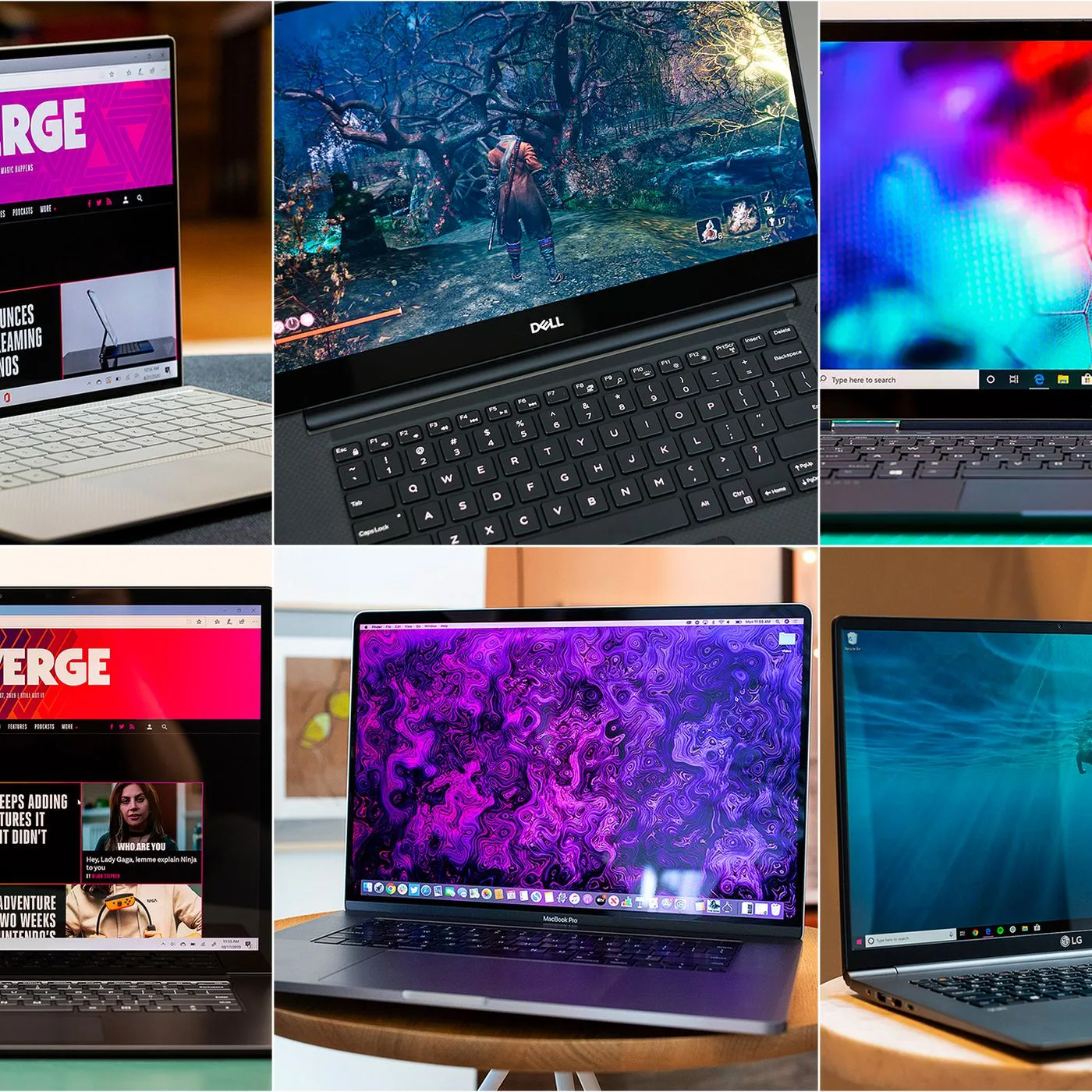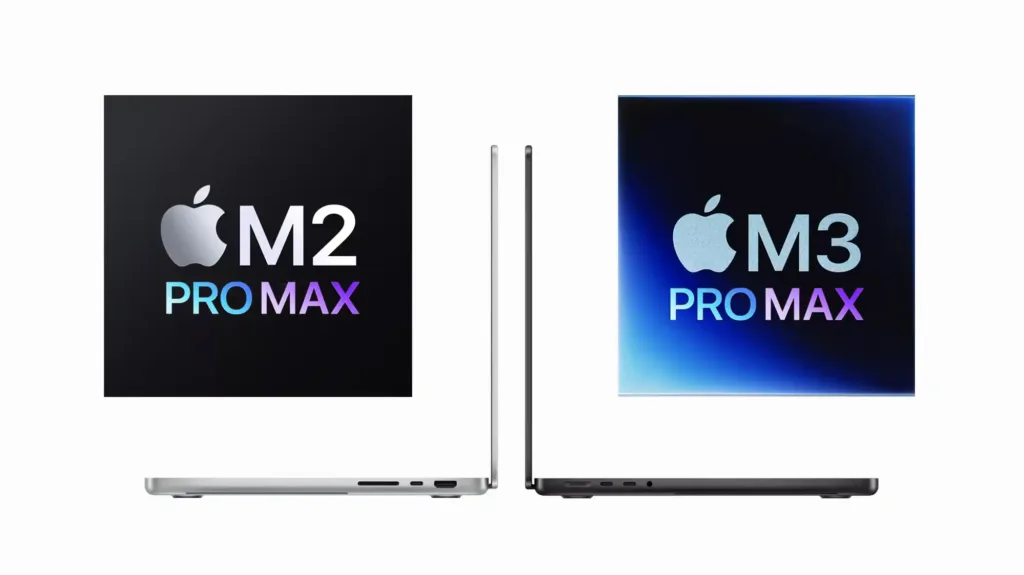How to Choose the Right Laptop for Your Needs: A Comprehensive Guide
SEO Meta Description:
Learn how to choose the right laptop for your needs. This comprehensive guide covers everything from display and processor to storage and battery life, so you can make an informed decision.
Introduction:
In today’s digital age, laptops have become an essential tool for work, school, and entertainment. With so many models and brands to choose from, finding the right laptop can be daunting. This comprehensive guide will walk you through all the key factors to consider when choosing a laptop, ensuring you make an informed decision that meets your specific needs and budget.
How to Choose the Right Laptop for Your Needs

-
Display:
Size and Resolution:
Consider the size and resolution of the display. A larger display is great for multitasking and multimedia, while a smaller display is more portable. The resolution determines the sharpness and clarity of the image, with higher resolutions providing more detail.
Type (IPS, TN, VA):
There are three main types of display panels: IPS, TN, and VA. IPS panels offer the best color accuracy and viewing angles, while TN panels are more affordable and have faster response times. VA panels offer a good balance of color accuracy and response time.
Brightness and Viewing Angles:
Make sure the display is bright enough for your needs, especially if you plan on using it outdoors. Wide viewing angles allow you to see the screen clearly from different positions.
Color Accuracy and Gamut:
If you’re a graphic designer or photographer, color accuracy and gamut are important considerations. Look for a display with a wide color gamut and accurate color reproduction.
-
Processor:
Number of Cores:
The number of cores in a processor determines how many tasks it can handle simultaneously. More cores are better for demanding tasks like video editing and gaming.
Clock Speed:
The clock speed determines how fast the processor can execute instructions. A higher clock speed means faster performance.
Cache Size:
The cache size helps improve performance by storing frequently used data and instructions. A larger cache size can improve performance for certain tasks.
Integrated or Dedicated Graphics:
Integrated graphics are built into the processor, while dedicated graphics cards are separate components that offer better performance for gaming and graphics-intensive tasks.
-
RAM:
Amount of RAM:
RAM (Random Access Memory) stores temporary data and instructions being processed by the computer. More RAM allows you to run more programs and tabs simultaneously without experiencing slowdowns.
Type of RAM (DDR3, DDR4, LPDDR3, LPDDR4):
Different types of RAM offer different levels of performance and power efficiency. DDR4 is the latest and fastest type of RAM, while LPDDR3 and LPDDR4 are commonly used in laptops for their low power consumption.
Speed of RAM:
The speed of RAM is measured in MHz (megahertz). Higher RAM speeds can improve performance, especially for demanding tasks like gaming and video editing.
-
Storage:
Type of Storage (HDD, SSD, NVMe SSD):
There are three main types of storage devices used in laptops: HDD (Hard Disk Drive), SSD (Solid State Drive), and NVMe SSD (Non-Volatile Memory Express SSD). HDDs are the most affordable, but they are also slower and less durable than SSDs. SSDs are faster and more durable, but they are also more expensive. NVMe SSDs are the fastest and most expensive type of storage.
Capacity of Storage:
Consider how much storage you need based on your usage. If you store a lot of photos, videos, and music, you’ll need a larger storage capacity.
Upgradeability:
If you think you might need more storage in the future, choose a laptop with an upgradable storage drive.
-
Battery Life:
Estimated Battery Life:
Manufacturers usually provide an estimated battery life for their laptops. However, actual battery life can vary depending on usage and settings.
Actual Battery Life:
Read reviews and check user feedback to get a better idea of the actual battery life you can expect from a particular laptop.
Factors Affecting Battery Life:
Several factors can affect battery life, including screen brightness, processor usage, and the number of programs running.
-
Connectivity:
Ports (USB, HDMI, Thunderbolt, Ethernet):
Make sure the laptop has the ports you need to connect your peripherals and accessories. USB-C ports are becoming more common and offer fast data transfer speeds and charging capabilities.
Wireless Connectivity (Wi-Fi, Bluetooth):
Check the laptop’s wireless connectivity options. Make sure it has the latest Wi-Fi standard (Wi-Fi 6) and Bluetooth version (Bluetooth 5 or higher).
Cellular Connectivity:
Some laptops offer cellular connectivity, allowing you to connect to the internet without a Wi-Fi connection. This can be useful if you’re often on the go.
-
Weight and Portability:
Weight of the Laptop:
Consider the weight of the laptop, especially if you plan on carrying it around frequently. Ultralight laptops are available for those who prioritize portability.
Dimensions of the Laptop:
Measure the dimensions of the laptop to make sure it fits comfortably in your backpack or carrying case.
Carrying Case or Sleeve:
Invest in a carrying case or sleeve to protect your laptop from scratches and bumps while traveling.
-
Design and Build Quality:
Materials Used in Construction:
Laptops are typically made from plastic, metal, or a combination of both. Metal laptops are more durable, but they are also heavier.
Durability and Ruggedness:
If you need a laptop that can withstand rough use, look for a model with a rugged design and MIL-STD-810G certification.
Aesthetics and Style:
Choose a laptop with a design that suits your personal style and preferences.
-
Operating System:
Windows, macOS, Chrome OS, Linux:
Choose an operating system that you are familiar with and that meets your needs. Windows is the most popular operating system, while macOS is exclusive to Apple computers. Chrome OS is lightweight and great for basic tasks, while Linux offers more flexibility and customization.
Features and Functionality of Each OS:
Research the features and functionality of each operating system to determine which one is the best fit for your needs.
Compatibility with Your Needs and Preferences:
Consider your specific needs and preferences when choosing an operating system. For example, if you need to run Windows-specific software, you’ll need a laptop with Windows.
-
Brand and Customer Support:
Reputation of the Brand:
Consider the reputation of the brand when choosing a laptop. Look for brands known for their reliability and customer support.
Quality of Customer Support:
Check the quality of customer support offered by the brand. Read reviews and check online forums to see what other customers have experienced.
Availability of Spare Parts and Repairs:
Ensure that spare parts and repairs are readily available for the laptop you choose. This is especially important if you plan on keeping the laptop for an extended period.
-
Price and Value:
Budget for a Laptop:
Set a budget for your laptop purchase before you start shopping. This will help you narrow down your options and focus on laptops that fit your budget.
Value for Money:
Consider the value for money offered by each laptop. Look for laptops that offer the best features and performance for your budget.
Finding the Best Deals and Discounts:
Shop around and compare prices from different retailers to find the best deals and discounts on laptops.
-
Additional Considerations:
Two-in-One Laptops vs. Traditional Laptops:
Two-in-one laptops offer the flexibility of a tablet and a laptop in one device. However, they may be more expensive and less powerful than traditional laptops.
Gaming Laptops vs. General-Purpose Laptops:
Gaming laptops are designed for gaming and offer powerful graphics cards and high-performance processors. However, they are often bulkier and more expensive than general-purpose laptops.
Business Laptops vs. Personal Laptops:
Business laptops are designed for professional use and often come with security features and enhanced durability. They may be more expensive than personal laptops.
-
Research and Reviews:
Reading Laptop Reviews:
Read laptop reviews from reputable sources to get an expert opinion on the performance, features, and value for money of different laptops.
Watching Laptop Comparison Videos:
Watch laptop comparison videos on YouTube to see how different models stack up against each other in terms of performance and features.
Consulting with Experts and Friends:
Consult with experts and friends who have knowledge about laptops to get their recommendations and insights.
-
Making the Final Decision:
Weighing the Pros and Cons of Each Option:
Weigh the pros and cons of each laptop option to determine which one best meets your needs and budget.
Choosing the Laptop that Best Meets Your Needs and Budget:
Choose the laptop that offers the best combination of features, performance, and value for money based on your specific needs and budget.
Buying the Laptop from a Reputable Retailer:
Purchase the laptop from a reputable retailer to ensure you get a genuine product with a warranty and support.
FAQs:

1. How can I choose the right laptop for my needs?
To choose the right laptop for your needs, consider factors such as the display size and resolution, processor performance, RAM capacity, storage capacity, battery life, connectivity options, weight and portability, design and build quality, operating system, brand reputation, and customer support. Set a budget and research different laptop models to find the best option that meets your specific requirements.
2. What are the key factors to consider when choosing a laptop?
The key factors to consider when choosing a laptop include the display size and resolution, processor performance, RAM capacity, storage capacity, battery life, connectivity options, weight and portability, design and build quality, operating system, brand reputation, and customer support.
3. What is the best laptop for students?
The best laptop for students depends on their specific needs and budget. Generally, students should consider laptops with a portable design, long battery life, and enough storage and RAM to handle their coursework and projects.
4. What is the best laptop for gaming?
The best laptop for gaming should have a powerful graphics card, a high-performance processor, and a fast refresh rate display. It should also have enough RAM and storage to handle demanding games.
5. What is the best laptop for business professionals?
The best laptop for business professionals should have a durable design, a long battery life, and a variety of ports and connectivity options. It should also have robust security features and be able to run business software and applications smoothly.
6. How can I get the best deal on a laptop?
To get the best deal on a laptop, shop around and compare prices from different retailers. Look for sales and discounts, and consider purchasing a refurbished or open-box laptop to save money.
Conclusion:
Choosing the right laptop for your needs is essential for a satisfying and productive computing experience. By considering the key factors discussed in this comprehensive guide, you can make an informed decision and find a laptop that meets your specific requirements and budget.
Whether you’re a student, a professional, or a gamer, there’s a perfect laptop out there for you. Take your time, do your research, and don’t be afraid to ask for help from experts or friends. With a little effort, you’ll find the perfect laptop to power your productivity, creativity, and entertainment for years to come.
[SEO Meta Description]: Discover how to choose the right laptop for your needs. Learn about key factors such as display size, processor performance, RAM, storage, battery life, connectivity, weight, design, operating system, brand, and price. Make an informed decision and find the perfect laptop that meets your specific requirements and budget.

